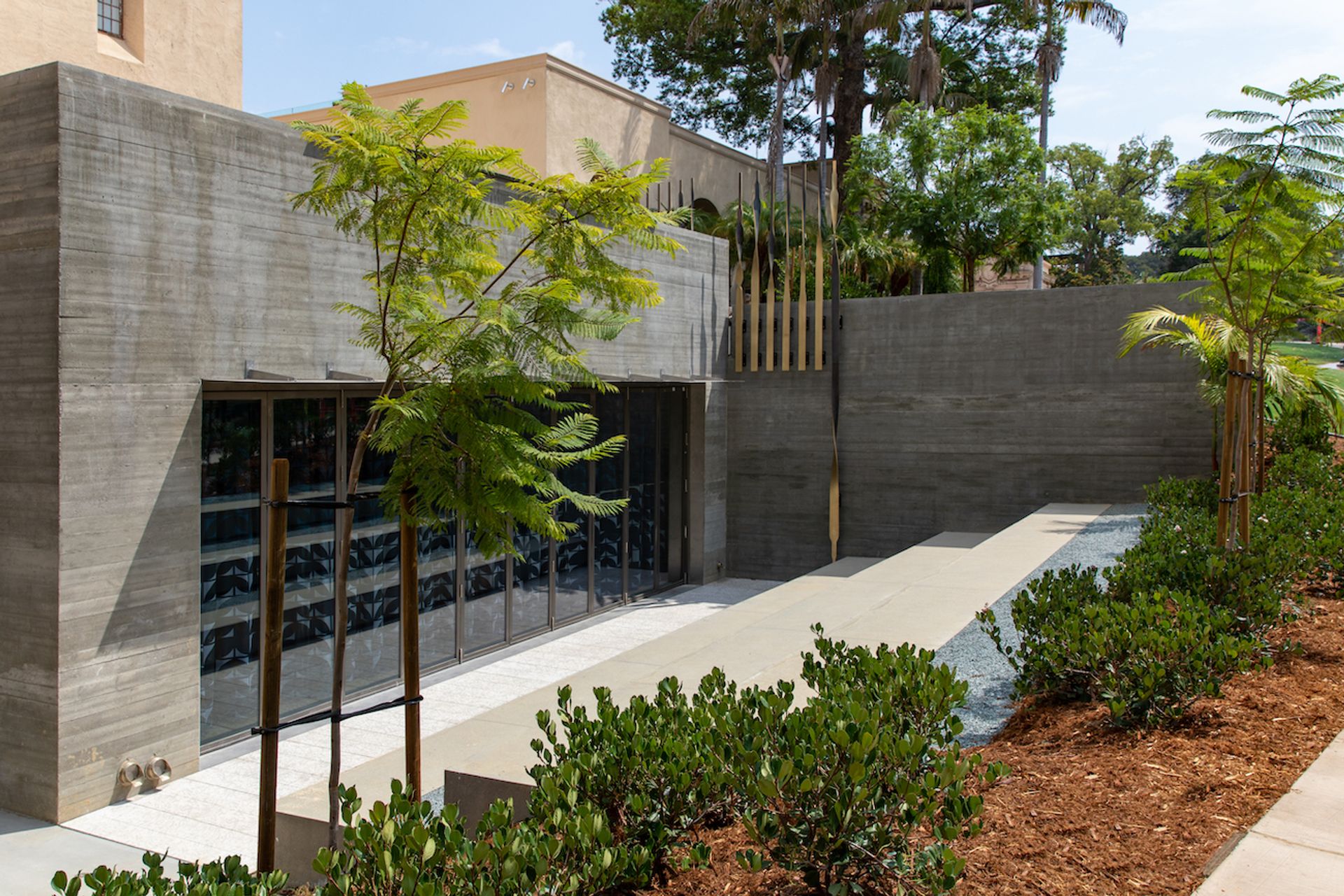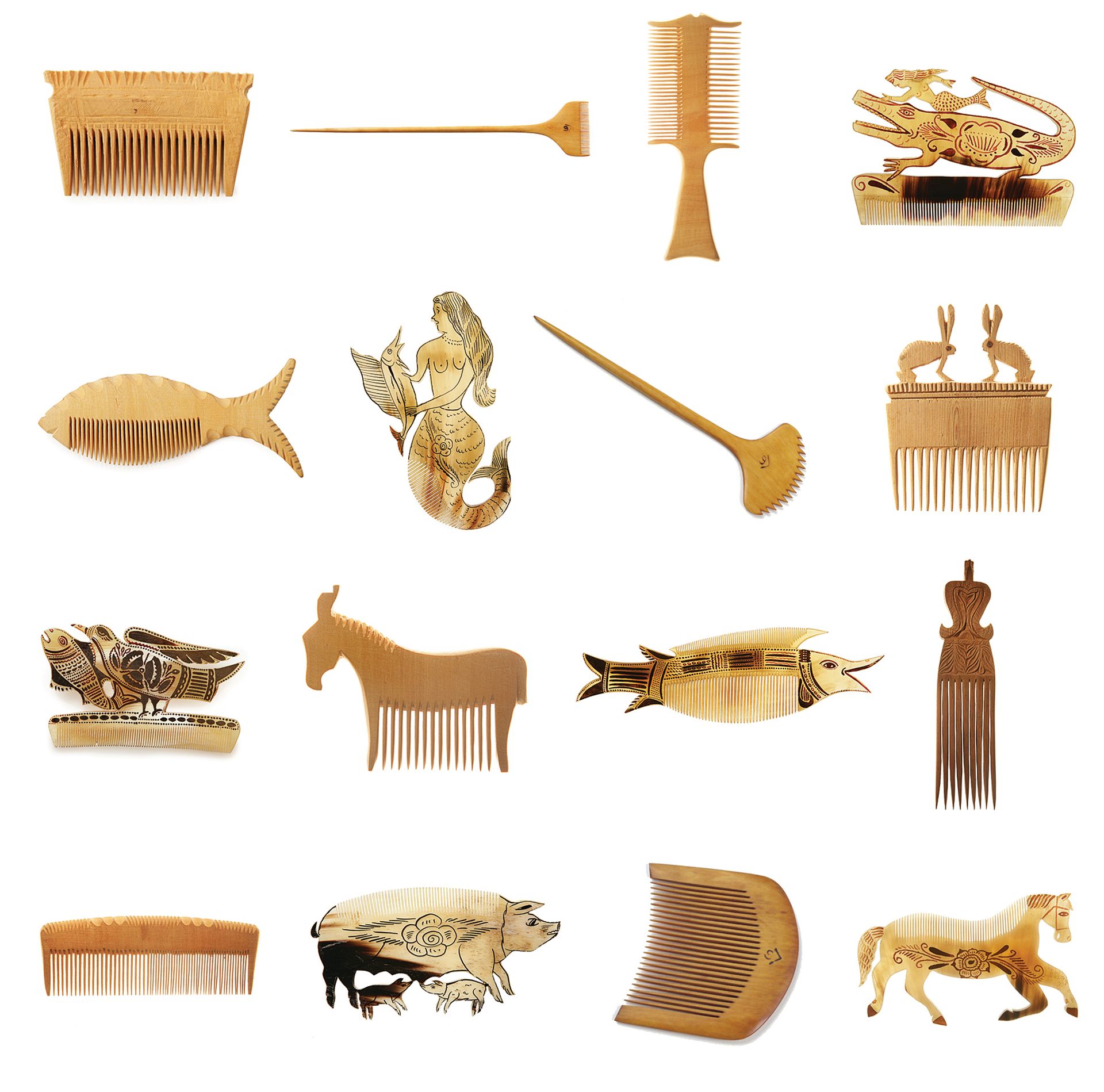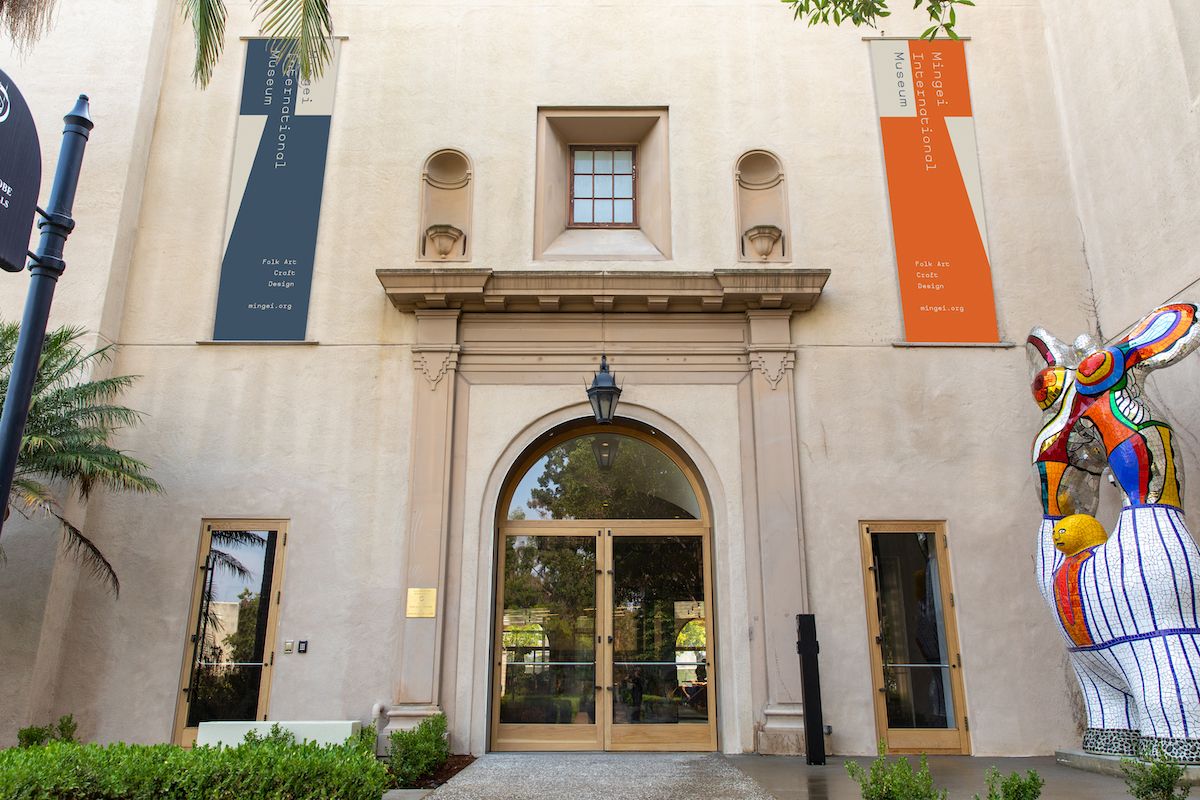The Mingei International Museum in San Diego, a little-known treasure trove of folk art and design, will reopen on 3 September in Balboa Park after a transformative $55m renovation and expansion and a three-year closure. The overhaul aims to “accentuate the richness and range of the collection” and to deviate from the “hermetic nature” of museums, says the architect Jennifer Luce, the principal and founder of Luce et Studio, which oversaw the project.
The renovation repurposes previously unused spaces in the 50,000 sq ft museum and includes the addition of an expansive outdoor plaza, a 120-person theatre with a 40 ft-long retractable glass façade, 10,000 sq. ft of extra exhibition and programming space, as well as a walk-up café.
The museum was founded by the late American ceramicist and art collector Martha Longenecker in 1978 to champion the “mingei” art movement, a concept developed in the mid-1920s by the Japanese philosopher Soetsu Yanagi which translates as “art of the people”. The movement, conceived as an aesthetic rebuttal to Japan’s rampant modernisation during that era, celebrates ancient processes and hand-made objects.
The museum will unveil eight commissions that fuse mingei tradition with technological advances in the craft movement. Works like Hedgerow, designed by Luce and installed in the outdoor plaza, feature digitally-rendered, machine-cut brass pickets that were hand-twisted. The installation Sessions by the Dutch designer Petra Blaisse, which also visible from outside the museum, is a billowing hand-made felt and voile hanging that flows along the length of the wall of the new theatre, acting as a filter for both the acoustics and light.

Rendering of the new theatre, transformed from a non-functional loading dock, featuring details of works by Jennifer Luce and Petra Blaisse Courtesy of Mingei International Museum; rendering by Luce et Studio
The institution has been housed in a historic Spanish colonial home since 1996 and had previously operated in a modest space in downtown San Diego. In an interview with the San Diego Union-Tribune, Longenecker said the move to Balboa Park marked the “true blossoming of the museum”, which then held around 9,000 objects.
Although the institution remained under-the-radar for several decades, it quietly built its collection to include around 25,000 pieces, ranging from ancient East Asian ceramics and textiles to pre-Columbian vessels as well as contemporary works by masters like Niki de Saint Phalle and Dale Chihuly.

A selection of carved wooden works from Mexico featured in Humble Spirit / Priceless Art Mingei International Museum
The inaugural exhibition Humble Spirit / Priceless Art (until January 2022) includes around 50 elaborate objects made from common materials like straw, paper, cotton and tin. Rob Sidner, the director and chief executive of the Mingei, says the show was inspired by the Japanese potter Shōji Hamada, whom Longenecker trained under during various trips to Japan starting in the mid-1950s.
“Hamada once said that one should never speak of art and money in the same breadth,” Sidner says, “and he believed that wonders can arise in art made from the imagination, everyday materials and one’s hands, when it seems there is little else to work with.”
The Mingei will also host the exhibition Global Spirit (until January 2022) featuring an assortment of 200 works, such as antique carvings from India and Japan, mid-century string instruments from the Philippines and ancient religious objects from around the world. These were donated to the museum by the late Oakland-based collector and designer Ted Cohen, who “truly embodied the mingei philosophy,” Sidner says, “embracing the beauty, colour and whimsy of objects that reveal the lives and history of people”.
The museum holds an endowment of around $22m, and renovations were funded through donations from Margaret A. Cargill Philanthropies and other patrons.


